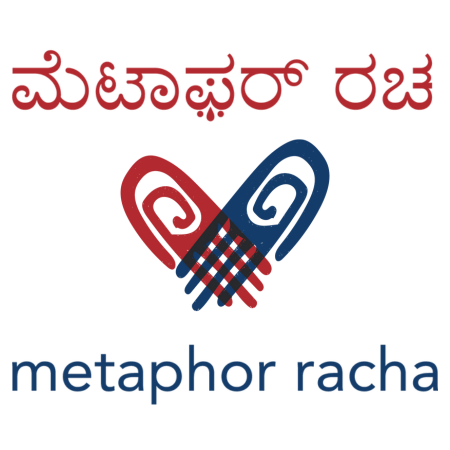
In-spite of having our own website, we at metaphor racha, participate at various exhibitions periodically. The idea is to connect with our customers directly. We have always replied to their questions about our source, process, achievements and many failures honestly.
As a person working with Indian craft, inquisitive consumer minds are what we look forward to. Meaning, a person who is eager to understand and could differentiate between khadi & handloom, chemical & natural dyes, handmade & machine-made, weaver & trader, cheap & costly and so on.
Though I encourage a healthy interaction with our customers, sometimes a well-intended question comes across grimly. I am getting older and hence I have the advantage of forgetting most of the impoliteness. Still, I have attempted to put down a few of my observations and their possible alternatives which might help customers sieve through fake narratives.
1] FABRIC: Get to know from which cluster is the textile made from, is there a specific name, history, and its significance.
Don't: Can I have the weavers number, so that I can buy directly from him?
Do: Though I am happy to be a part of this value chain, how are we contributing to the sustainability of this cluster?
2] BRAND: Get to know of the brand, people behind it and are they approachable.
Don't: Are you a trader?
Do: Is there a specific reason why you thought of starting this work/brand?
3] COUNTS: This is a bit technical but if you are inclined to know, go ahead and ask. You will be surprised to find the varieties available across our country.
Don't: Why is this so flimsy/heavy?
Do: How can I understand more about the fineness/coarseness of this product?
4] COLOR: All that's indigo is not natural dyed! and many of the Azo-free mindfully chemical dyed is not bad either.
Don't: Why is this sari so dull?
Do: Please tell me the process of dyeing and the reason behind these subtle colors.
5] CRAFT: We have enough craft in our country to suffice everyone's need and taste. There is no need to digitize or mechanize unnecessarily.
Don't: Is it your design?
Do: What are the craft involved in this product and what is the brand/designer contribution?
6] PRICE: It's one of the most important aspects of the purchase. If you find anything which is handmade, priced ridiculously less/more, it means someone in the value chain is taken for granted.
Don't: Why is it so expensive?
Do: Is there a particular reason why this product is priced this way and how many hands are involved in this value chain for it to be priced like this?
7] CARE: Anything which is handmade needs care. But, the care need not cost you an earth.
Don't: How long does this product last?
Do: Please let me know the best way to take care of this product by myself without using harsh chemicals?
8] SERVICE: Smaller brands always tend to serve better, but many of them come with limitations depending on their business module.
Don't: Can you make a sari in a different color? Can you make a garment in my size?
Do: If your business accepts customization, I would like to pursue the possibility further by coming to your studio.
9] Design: Every brand/designer will have a certain design ethos. If you see many inspirations from various brands under one roof, it's a red flag.
Don't: It's a one-stop-shop, how convenient!
Do: What's the core design sensibility of this brand/designer? How do I identify it?
10] Exclusive: Anything handmade is exclusive by default. Having said that, a brand selling 300 saris and all being one-off pieces needs more probing.
Don't: I do not want to see someone else wearing the same sari/garment.
Do: How often do you produce your sari/garment collection? How small/big is each collection? Do you sell anywhere else in the city?
11] Sustainability: As much as it's a clichéd word, it's important to understand the role of the brand and their work towards the sustainable craft.
Don't: Are you a sustainable brand?
Do: Explain to me the various steps which you have adopted to reinforce sustainability at your work.
12] Organic: The meaning of organic is beyond cotton. If a brand uses organic cotton, spins it in huge mills, then dyes the yarn in naphthol, woven on machines, sold in glittering AC showrooms, shipped in plastic covers and if all this work involves 6 different states, imagine the carbon footprint this organic cotton has gone through!
Don't: Are you an organic brand?
Do: Which part of your work is organic, why is it important and what are the challenges?
Many more points can be added to the list but I leave you to improvise and rest my case here. Some of these questions might help you call-out brands who are into selling fake products. A conscious consumer not only buys products from authentic sources but also holds the brand/designer responsible for their work. It is our collective craft responsibility.
